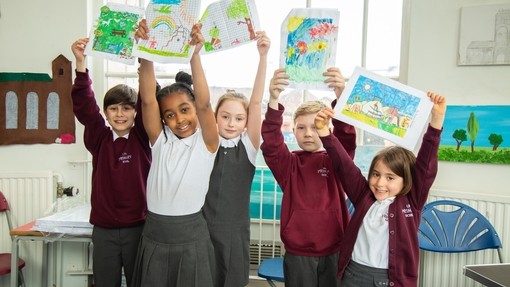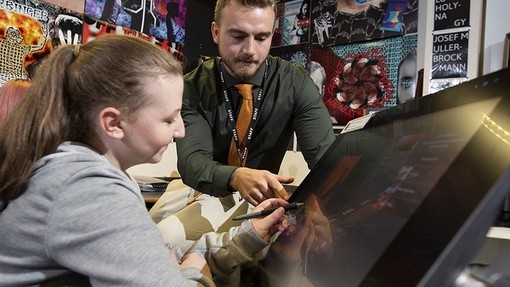
Want to boost employability? Look to the arts
Content
Schools are cutting back on the arts to focus on EBacc subjects, but the benefits for employability are significant
What do the Mercedes Young Apprentice of the Year 2018, a trainee secondary school drama teacher, an Oxbridge student of mechanical engineering on her industry placement year abroad and the Royal Opera House’s latest technical theatre apprentice have in common? Each of these inspiring young women is making use of the skills and knowledge gained from embracing a variety of high-quality arts learning – both inside and outside the classroom – during their years of study at Ricards Lodge High School.
As a girls’ school committed to our mission statement of “educating successful women of the future”, we ensure that arts subjects play an important role in the curriculum for all students, from Year 7 to 13. Financial pressures and an increased emphasis on EBacc subjects have led many schools to narrow their arts provision, but we have bucked this trend.
All students at key stage 3 study dance, drama, art, technology and music each week in specialist facilities, developing practical skills while exploring and expressing the social, moral and cultural issues relevant to their lives. At KS4 and KS5, we also offer production arts, musical theatre and media and film studies.
Taking part in learning like this is invaluable to all students involved. They master the art of meeting deadlines, taking risks, overcoming challenges, working as part of a team, thinking on their feet, being creative, showing initiative, taking critical feedback and acting on it. These are skills that are relevant for all careers and for life in general.
The power of the arts
And those skills are best developed through experience. Our huge variety of hands-on projects includes production arts students working in front-of-house roles for school performance events; Year 12 A-level and BTEC film and media students working with Chocolate Films on its 1,000 Londoners documentary film project each July; and students from all year groups submitting paintings and sculptures in response to a brief from a local gallery (then attending the public exhibition to discuss their work with the general public and local dignitaries).
This approach spans the entire curriculum, whether it’s our young environmental scientists using photography skills to explore how we can all make a difference to climate change (and exhibiting their work both at school and at a university campus to provoke wider discussion and action) or musicians forming bands and rehearsing during every spare moment before performing at Wembley in front of thousands of students from around the country as part of the Rock Assembly event.
Artsmark has supported us to structure our curriculum so that students can have these opportunities to develop confidence and express their thoughts and feelings. We also value the huge benefits that the arts can offer in terms of mental and physical wellbeing and engagement with the wider community.
A recent example of this would be the Open Minds Project. This project was in partnership with the Wimbledon Civic Theatre Trust, which had sourced funding for a drama project, working with young people who have self-identified as needing support with their mental health. A practitioner came into school and worked with the group, many of whom had low self-confidence and had never performed before. They completed a series of workshops, based on their own stories and opinions about mental health, and created an inspiring, challenging and thought-provoking piece of immersive theatre for their families, friends, teaching staff and local healthcare providers to watch.
Our students go on to a wide variety of further learning across universities around the country, and while many go on to study at prestigious conservatoires for the arts, just as many go on to utilise the skills acquired through the arts in studying sciences or humanities degrees.
Whatever future jobs our students may head towards, their arts education will have enabled them to develop a skill set that any employer would acknowledge as invaluable. Many years ago the Arts Council coined the phrase “the transformational power of the arts”. Today, in a world where being able to have empathy, be resilient and work independently and with others is more vital than ever, we believe that power is an essential force.
Paula Simmons is deputy headteacher at Ricards Lodge High School, a comprehensive school in Wimbledon


